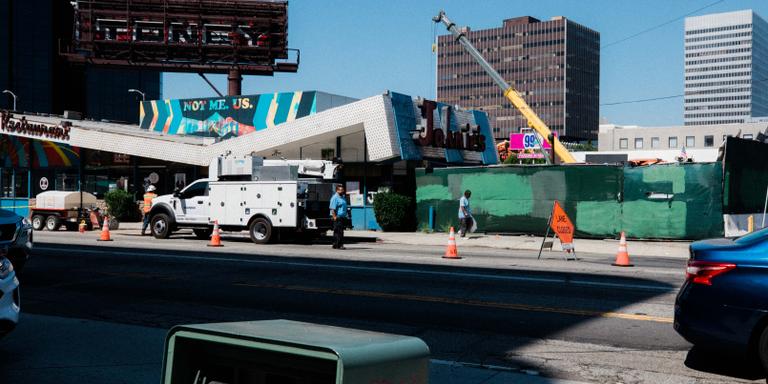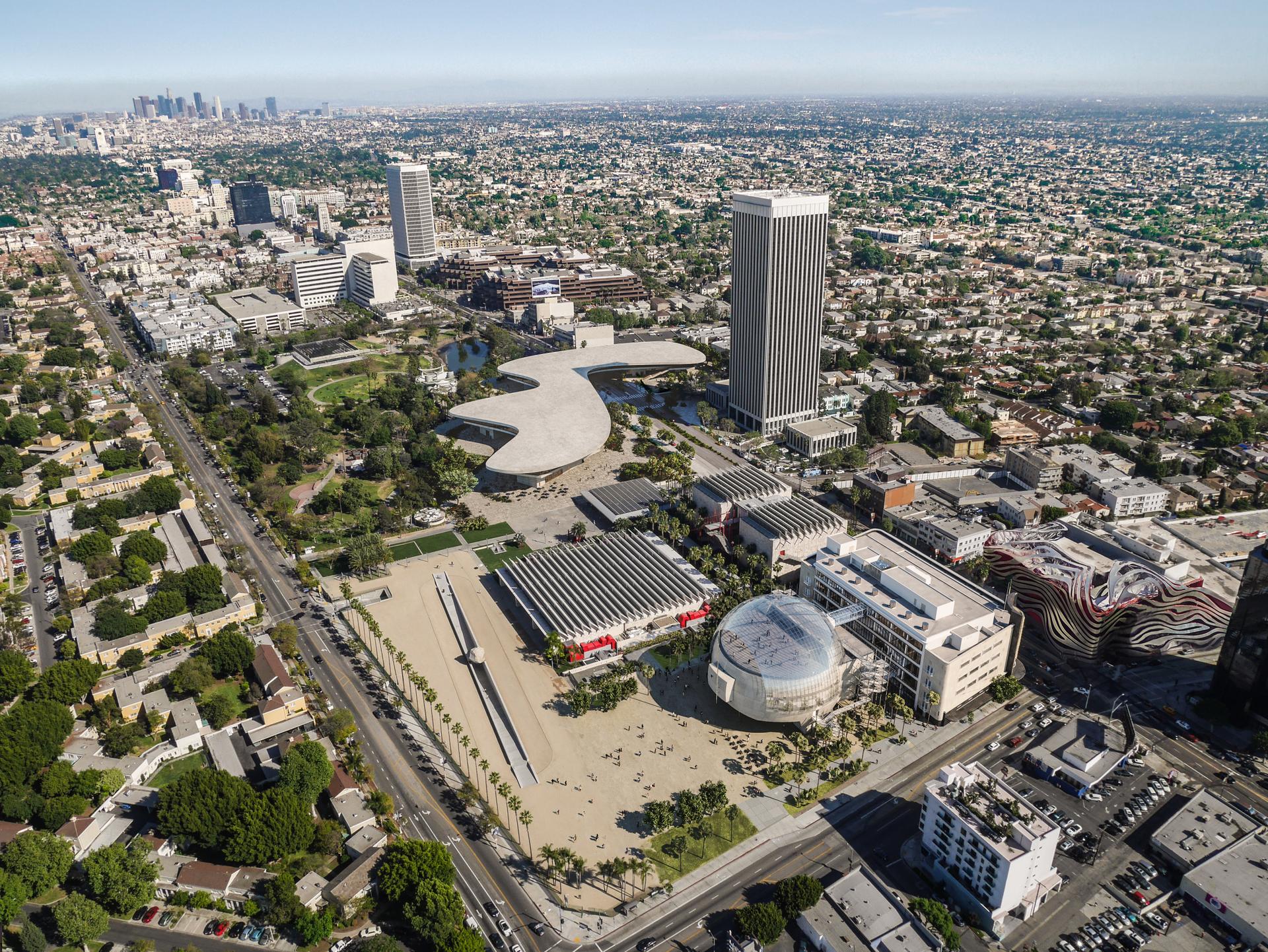


LACMA: Los Angeles's future beacon of light and artistic renewal
Series'Los Angeles: An architect's dream' (5/6). In a city where museums are young, LACMA, the oldest and richest of them all, is undergoing a major reconstruction. The Peter Zumthor-designed building will open at the end of 2024, with the ambition of being more artistically inclusive.
In the still-young city of Los Angeles, obsolescence sometimes announces itself without warning. Barely 60 years after its inauguration, the Los Angeles County Museum of Art (LACMA), the city's leading museum with a collection of nearly 150,000 works from all periods and continents, has been deemed fit for the scrap heap. The complex, designed in the 1960s by architect William Pereira and comprising three elegant sand-colored paving stones arranged around a large water basin, was razed in 2020. The annex built by the Hardy Holzman Pfeiffer agency in 1986, which had been inserted right in the middle, suffered the same fate.


In its place stands a new building under construction, due for completion before the end of 2024. We're on the edge of Wilshire Boulevard, the city's mythical artery that stretches east-west for 25 kilometers, from downtown to the Pacific Ocean, on the Miracle Mile, the stretch around LACMA that is home to a whole host of cultural institutions (an annex of the Natural History Museum, the Petersen Automotive Museum, the Academy Museum of Motion Pictures, etc).
Clean slate
Designed by renowned Swiss architect Peter Zumthor, the building is destined to become LACMA's flagship. As is customary in the US, it will be named after its principal donor, music producer and collector David Geffen. In the meantime, the museum is concentrating its activities in the Broad Contemporary Art Museum (2008), and the Resnick Pavilion (2010), LACMA's two most recent additions, built on the same site by Renzo Piano – the only ones to escape demolition.
The City of Angels, also known as the capital of oblivion, was built on the principle of a clean slate. By what other miracle could a Spanish colonial village, founded in 1781, have become this incredible megalopolis in less than two centuries? While a consensus has been reached on the value of some of the masterpieces and architect-designed houses that helped forge its myth in the 20th century, the notion of heritage remains an insult to the forward-looking spirit that continues to drive the city – and to private property, the supreme value in the United States.

LACMA's owner is the County of Los Angeles, which in this case followed the advice of the museum's director, Michael Govan: destroy and rebuild. He welcomed us to the top floor of the 5900 Wilshire, where the museum's offices have been relocated for the duration of the construction, and immediately led us to the bay window from which he contemplates the progress of the site, 30 floors below. In rapid-fire succession, he told us that the option of restoration had been discussed, but immediately ruled out. "The museum had so many leaks that it was nicknamed 'Leakma!' Renovation would have cost $300 million... I could never have raised that kind of money." A new building, designed by a great architect, is politically more profitable than renovating an old one, even if, like Zumthor's, it costs more than twice as much. Also, demolition was already on everyone's mind. At the dawn of the 2000s, a competition was launched to rehabilitate the old LACMA complex, and the winning project (never carried out), by the Dutch agency OMA, led by architect Rem Koolhaas, recommended razing three-quarters of it to the ground.
You have 66.77% of this article left to read. The rest is for subscribers only.
